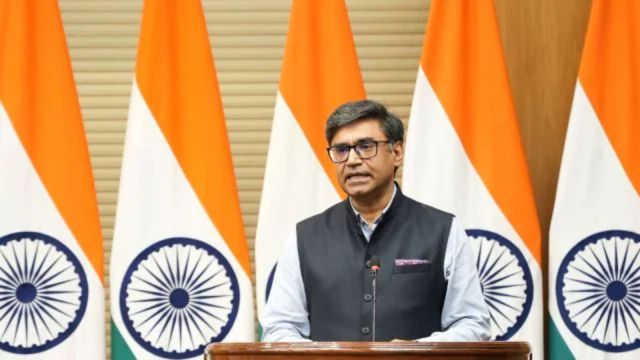Stating that terrorism doesn’t distinguish and impacts everybody, Foreign Secretary Vikram Misri said on Thursday that it was important not to equate the victim and the perpetrator of terror attacks.
Speaking at Raisina Tokyo 2025, Misri appreciated the support extended to India by Japan following the terror attack in Pahalgam on April 22 that killed 26 people.

“India is deeply appreciative of the support that is being extended by Japan, as we have dealt with the tragedy that took place on the 22nd of April in Pahalgam, Jammu and Kashmir in India,” he said.
Story continues below this ad
“While I welcome these statements, I also want to note for everybody’s consideration that as we deal with the scourge that is terrorism that doesn’t distinguish and that impacts everybody in the world from time to time, it is important that we don’t equate the victim and the perpetrator of these attacks,” he said.
In his bilateral visit to Japan, Misri met his counterpart Vice Foreign Minister Takehiro Funakoshi and exchanged views on issues of topical importance.
“The two sides reviewed the salient issues in the multi-dimensional bilateral ties between India and Japan, including political relations, defence and security, economic cooperation and people to people exchanges,” a Ministry of External Affairs statement said.
Foreign Secretary also met National Security Advisor of Japan Masataka Okano, and Senior Deputy Minister for Foreign Affairs Hiroyuki Namazu to discuss regional and international issues of mutual interest.
Story continues below this ad
Misri appreciated the support to and solidarity with India demonstrated by the government and the people of Japan following the terrorist attack in Pahalgam.
Foreign Secretary’s visit and his meetings today provided yet another opportunity to reflect on and reaffirm the two countries’ shared determination to fight terrorism in all forms and manifestations as well as the support infrastructure behind acts of terror, the statement said.
The visit was in continuation of the regular high-level contacts between the two sides in effort to further deepen the India-Japan Special Strategic and Global Partnership.
Talking about the global economy, Misri said that after a smooth ride spanning decades, it is finding itself in somewhat uncharted waters with uncertainties at their highest in recent memory.
Story continues below this ad
“First came the tremor of the COVID-19 pandemic. On its heels, came the supply chain aftershocks, wars and conflicts, big, middling and small followed, and amid all this, trade and technology are being weaponised as never before,” he said.
In a turbulent world, India is determined to become a fact and a factor of stability, Misri said, adding that India’s ability to maintain a stable macroeconomic outlook, demonstrate political and institutional stability, uphold democratic values, and contribute to global public good and multilateral problem-solving gives it both credibility and agency.
“Located at the geographic, demographic and economic heart of Asia, India’s choices will have ever more important consequences for our continent and beyond in these tumultuous times,” he added.
With a 1.4 billion strong population, India continues to be an attractive destination for global capital, he said.
Story continues below this ad
“As the world reconfigures supply chains and reinvents global collaboration to deal with turbulence, the Special Strategic and Global Partnership between India and Japan can emerge as one of the most significant relationships in the 21st century, not only for its economic promise but also for the close alignment on principles — such as strengthening the rules-based order, strategic autonomy, and sustainable growth,” he said.
He said India encourages Japanese businesses to diversify the trade basket with India by expanding into new sectors such as digital services, renewable energy, critical minerals and semiconductors.
“A broader trade engagement across sectors will not only unlock new business potential but also enhance economic stability, reduce over-dependence on concentrated markets, ensure supply chain resilience and strengthen long-term economic security for both India and Japan,” he said.
He said both India and Japan are witnessing profound uncertainties as globalization enters a new phase, but India has the confidence to make it work for both countries
Story continues below this ad
“We believe we are fundamentally and structurally well-placed to navigate this phase in partnership with Japan, rather than in competition. The challenge before us – for governments and businesses alike — is to wake up to these opportunities of a new day,” he said.









